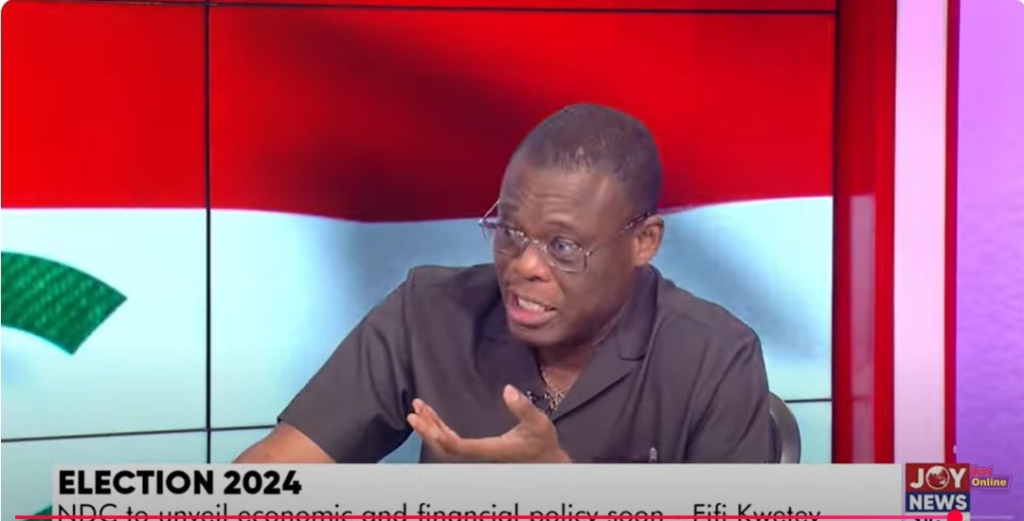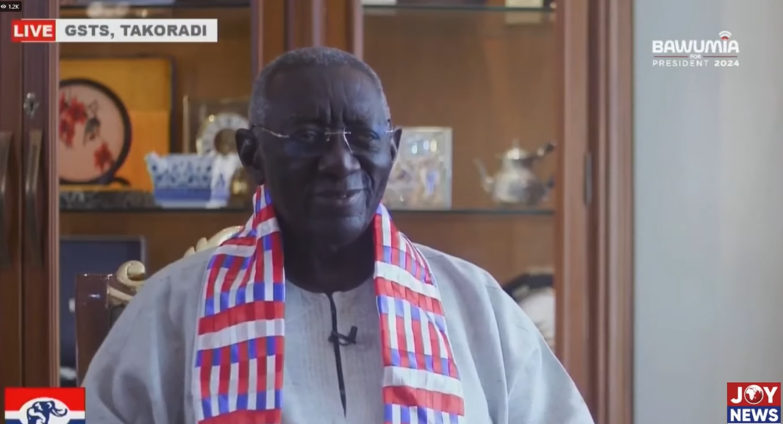The General Secretary of the National Democratic Congress (NDC), Fifi Fiavi Kwetey, has refuted claims that former President John Agyekum Kufuor left behind a robust economy, stating that the reality of Ghana’s financial situation at the time was far from strong.
Speaking on JoyNews' Upfront, Mr. Kwetey addressed the challenges the National Democratic Congress (NDC) faced when it assumed power in 2009, drawing attention to the economic issues inherited from the New Patriotic Party (NPP) government under Kufuor.
Mr. Kwetey described the 8% economic growth during Kufuor’s tenure in the final years of his administration as “cosmetic,” emphasising that it did not reflect the reality of the economy’s fundamentals.
“That growth was nominal, driven by temporary factors rather than substantive improvements in the real economy,” he explained. “The fundamentals were weak, and we had to work hard to rebuild the economy from the ground up.”
"..Somehow people forget, people create the impression as if that President Kufuor left an economy that was so strong. No, it was not strong."
He pointed out several key indicators of economic instability that characterized the period.

According to him, the cedi depreciated by over 20% in the final year of President Kufuor’s administration, highlighting significant weaknesses in currency stability. Inflation, which stood at 18% when the NDC took over, quickly rose to 21%, exacerbating the financial challenges.
Again, he noted that the banking sector was also in crisis, with the Ghana Commercial Bank teetering on the brink of collapse.
Additionally, the country’s balance of payments was severely negative, underscoring difficulties in external trade and financial management, adding that a fiscal deficit of 15%, coupled with judgment debts and unpaid commitments amounting to 22% of GDP, was clear evidence of economic mismanagement during the period.
Mr. Kwetey, however, drew parallels between the challenges faced in 2009 and the current economic crisis, asserting that the NDC has a track record of tackling severe economic problems.
“This is not the first time we are coming into government and meeting challenges. In 2009, we inherited an economy in disarray, but through hard work and strategic measures, we stabilised and rebuilt it. The scale of the current crisis is much bigger, but we are ready to face it once again.”
Latest Stories
-
Debt restructuring programme was poorly structured – Finance Minister Ato Forson says
4 hours -
Mahama appoints fresh batch of ambassadors to key global capitals
5 hours -
Isak wants to explore move away from Newcastle
5 hours -
Benin names Spike Lee and wife ambassadors for African-Americans in the US
5 hours -
Trade deal on US tariffs within reach, says EU, as 1 August deadline nears
5 hours -
Trump bickers with Powell over Fed renovation costs
6 hours -
‘We will not default’ – Ato Forson assures bondholders as GH¢20bn DDEP payment plan unfolds
6 hours -
Take time to get VAT reforms right before scrapping COVID-19 levy – Prof. Asuming
6 hours -
France will recognise Palestinian state, Macron says
6 hours -
Foreign Affairs Ministry denies issuing Ghanaian passports to non-citizens
7 hours -
Uganda to host Asia/Africa play-off for 2027 Rugby World Cup
7 hours -
Landslide destroys farmlands and livelihoods in Santrokofi, sparks famine fears
7 hours -
UHAS Dean urges strategic role for laboratory managers in 24-hour health system reform
8 hours -
Society of Medical Laboratory Managers chair calls for inclusion in core health management
8 hours -
Mahama promises to renovate Atta Mills Presidential Library
8 hours

